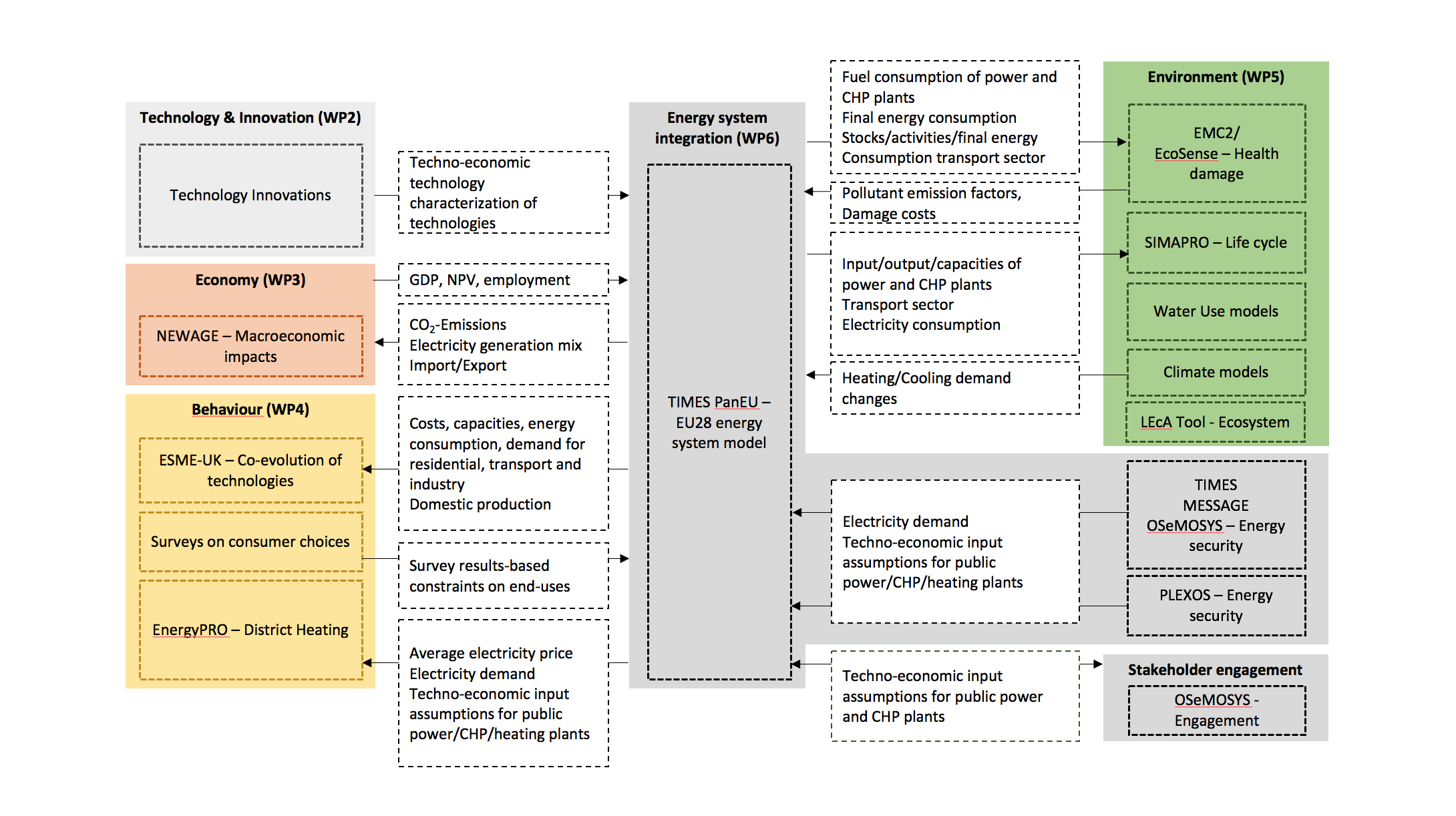The REEEM project aims at analyzing how different technologies can impact the transition to a low carbon economy in the EU28+2 (Norway and Switzerland) by 2050. To do so, a suite of models is used, looking at different aspects (macroeconomics, energy system optimization, LCA of energy technologies etc.) and on different scales spanning from pan EU28+2 to case studies covering either single countries or even municipalities. In many cases those models are soft-linked resulting in a multi-modelling framework.
Soft-linking models means establishing an exchange of inputs and/or outputs between them, so that one can be informed by the findings of another. The exchange can be either mono-directional (from one model to the other) or bi-directional (through iterations). In either way, soft- linking models is a complicated process and it requires a set of well-defined and documented actions.
In REEEM, the integrated modelling framework will be created step-by-step, linking two models at every step.
The full integrated modelling framework completed by end of the project can be summarized by the figure below.




